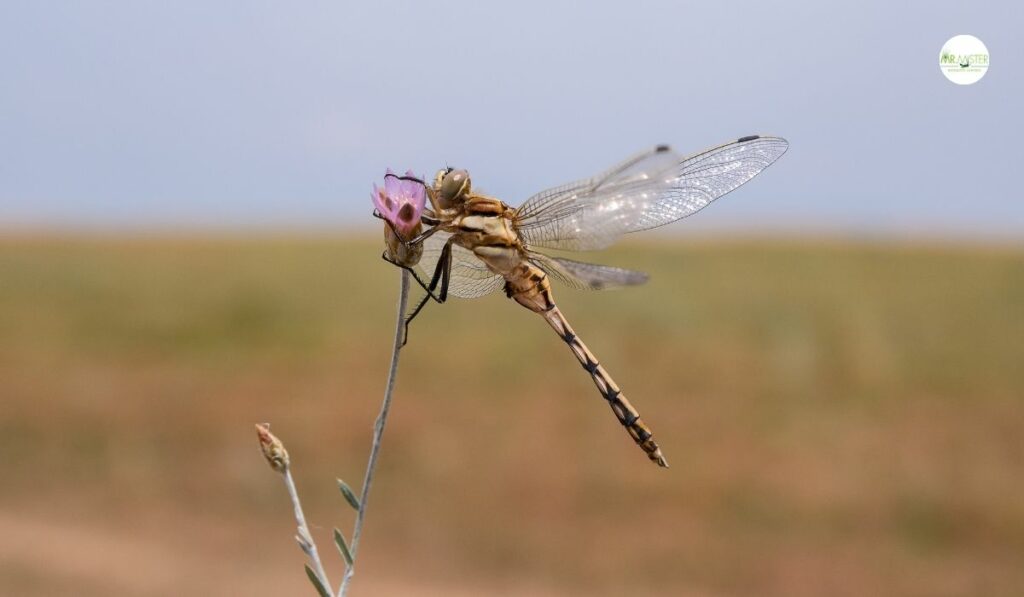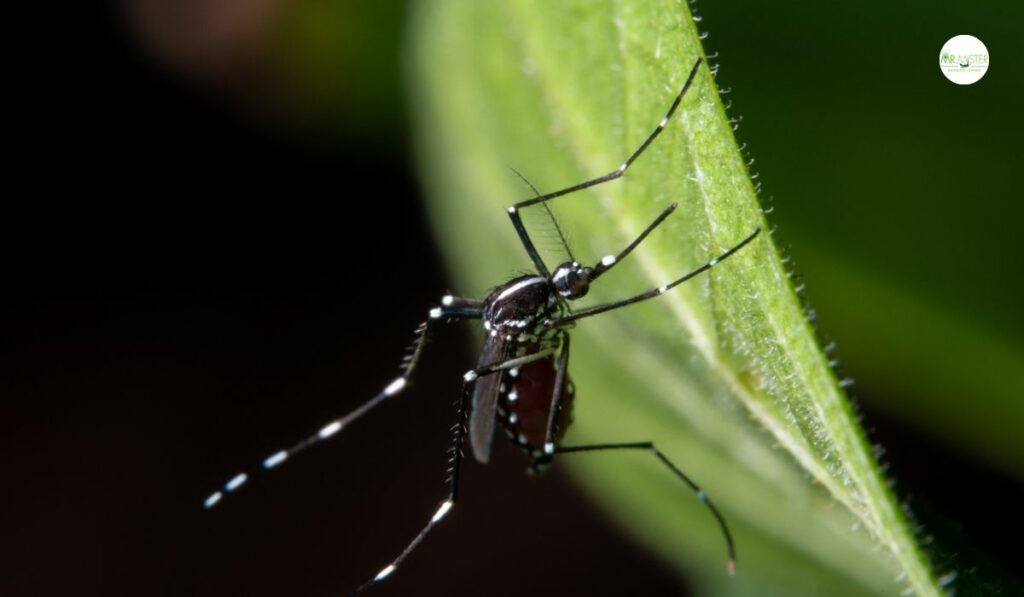What is commercial mosquito control, and why is it important?
Mosquitoes, the tiny yet formidable creatures, have plagued humanity for centuries with their itchy bites and the diseases they transmit.
In recent years, the importance of mosquito control, especially in commercial settings, has gained significant attention due to the rising concern over vector-borne diseases and their impact on public health and economic activities.
This article delves into the world of commercial mosquito control, exploring its significance and why it is crucial for safeguarding both human well-being and economic prosperity.
Understanding Commercial Mosquito Control:
Commercial mosquito control refers to the systematic management of mosquito populations in various commercial environments such as businesses, parks, resorts, schools, and healthcare facilities.
Unlike residential mosquito control, which focuses on individual homes, commercial mosquito control encompasses larger areas where people congregate, work, or engage in recreational activities.
Importance of Commercial Mosquito Control:
Public Health Protection:
Mosquitoes are notorious vectors of several deadly diseases, including malaria, dengue fever, Zika virus, West Nile virus, and chikungunya.
In commercial settings where large numbers of people gather, the risk of disease transmission escalates significantly.
Effective mosquito control measures help mitigate this risk by reducing mosquito populations and limiting the spread of diseases.
Prevention of Disease Outbreaks:
A single mosquito bite can unleash a cascade of health complications, leading to disease outbreaks that can overwhelm healthcare systems and disrupt normal societal functions.
By implementing proactive mosquito control strategies, commercial establishments can prevent the emergence and spread of mosquito-borne diseases, thus safeguarding public health and minimizing the burden on healthcare resources.
Enhancing Outdoor Experience:
Many commercial entities, such as resorts, parks, and outdoor event venues, rely on outdoor spaces to attract customers and provide enjoyable experiences.
However, the presence of mosquitoes can mar these experiences, driving away customers and affecting business revenue.
Through targeted mosquito control measures, businesses can create safer and more enjoyable outdoor environments for their patrons, thereby enhancing customer satisfaction and loyalty.
Protecting Workforce Productivity:
Mosquitoes pose health risks to customers and employees working in outdoor or semi-outdoor environments.
Constant exposure to mosquito bites can lead to decreased productivity, absenteeism, and workplace morale issues.
By investing in commercial mosquito control, employers can create safer and healthier work environments, thereby preserving workforce productivity and reducing associated costs.
Economic Stability:
Mosquito-borne diseases can have far-reaching economic consequences, particularly in regions heavily reliant on tourism, agriculture, and outdoor recreational activities.
Disease outbreaks can deter tourists, disrupt agricultural operations, and hamper outdoor events, leading to revenue losses and economic instability.
Effective mosquito control helps maintain a conducive environment for financial activities, ensuring continuity and sustainability in commercial ventures.
Environmental Preservation:
While the primary goal of commercial mosquito control is to protect human health, it also contributes to environmental preservation.
Traditional mosquito control methods, such as indiscriminate spraying of insecticides, can have adverse effects on non-target organisms and disrupt delicate ecosystems.
However, modern mosquito control techniques focus on environmentally friendly approaches, such as larviciding, biological control methods, and habitat modification.
By minimizing the use of harmful chemicals and adopting sustainable practices, commercial mosquito control efforts can help maintain ecological balance and biodiversity in affected areas.
Community Engagement and Education:
Effective mosquito control is not solely reliant on technical interventions but also community participation and awareness.
Commercial establishments can play a crucial role in educating employees, customers, and residents about mosquito-borne diseases, prevention strategies, and the importance of environmental stewardship.
By fostering a culture of proactive mosquito management within the community, businesses can garner support for ongoing control efforts and promote responsible behavior that contributes to long-term mosquito control success.
Adaptability to Emerging Threats:
Mosquito-borne diseases are dynamic and constantly evolving, presenting new challenges to public health authorities and commercial entities alike.
The emergence of novel pathogens, insecticide resistance, and changes in mosquito behavior necessitate adaptive and innovative mosquito control strategies.
Commercial mosquito control programs should remain flexible and responsive to emerging threats, utilizing surveillance systems, research collaborations, and technology advancements to stay ahead of evolving mosquito populations and disease dynamics.
Regulatory Compliance and Corporate Responsibility:
In many jurisdictions, commercial establishments are subject to regulatory requirements and guidelines governing mosquito control practices.
Compliance with these regulations not only ensures legal obligations are met but also reflects a commitment to corporate social responsibility and public health stewardship.
By adhering to best practices endorsed by regulatory agencies and professional organizations, businesses can demonstrate their dedication to maintaining safe and healthy environments for employees, customers, and surrounding communities.
Collaboration and Partnership Opportunities:
Effective mosquito control often requires collaboration and partnership among various stakeholders, including government agencies, public health organizations, academic institutions, and private sector entities.
Commercial establishments can leverage these collaborative opportunities to access expertise, resources, and funding support for implementing comprehensive mosquito control programs.
By working together synergistically, stakeholders can maximize the impact of mosquito control efforts, optimize resource allocation, and achieve sustainable outcomes in disease prevention and vector management.
Conclusion
Commercial mosquito control is a multifaceted endeavor that extends beyond mere pest management to encompass broader goals of public health protection, environmental sustainability, and community engagement.
By embracing innovative techniques, fostering collaboration, and prioritizing responsible stewardship, commercial establishments can effectively mitigate the risks posed by mosquitoes and contribute to healthier, more resilient communities.
As the global landscape of mosquito-borne diseases continues to evolve, the importance of proactive mosquito control in commercial settings remains paramount in safeguarding human health, promoting economic stability, and preserving the planet for future generations.
To learn more about how to implement effective mosquito control measures for your commercial establishment, contact us at Mr. Mister Mosquito Control.
FAQs
How does commercial mosquito control differ from residential mosquito control?
Commercial mosquito control focuses on larger areas where people congregate or work, such as businesses and parks, while residential mosquito control targets individual homes. The scale and scope of control measures may vary accordingly.
What are some standard methods used in commercial mosquito control?
Common methods include larviciding, biological control methods, habitat modification, and targeted insecticide spraying. Modern techniques prioritize environmentally friendly approaches to minimize harm to non-target organisms and ecosystems.
How can businesses contribute to effective mosquito control?
Businesses can contribute by implementing proactive control measures on their premises, educating employees and customers about mosquito-borne diseases, supporting community engagement initiatives, and complying with regulatory requirements.
Is commercial mosquito control effective in preventing disease transmission?
Yes, when appropriately implemented, commercial mosquito control can significantly reduce mosquito populations and mitigate the risk of disease transmission in commercial settings.
How can businesses assess the effectiveness of their mosquito control efforts?
Businesses can assess effectiveness through monitoring mosquito populations, tracking disease incidence rates, gathering feedback from employees and customers, and collaborating with public health authorities.
Are there any potential drawbacks or risks associated with commercial mosquito control?
While modern control methods prioritize environmental safety, improper use of insecticides or failure to comply with regulations can pose risks to non-target organisms and ecosystems. Additionally, reliance on chemical control methods may contribute to insecticide resistance in mosquito populations over time.
How can businesses stay informed about emerging trends and technologies in mosquito control?
Businesses can stay informed through industry publications, participation in professional associations, attending conferences and seminars, and collaborating with research institutions and public health organizations.
What role do government agencies play in commercial mosquito control?
Government agencies often provide guidance, regulations, and funding support for mosquito control efforts. They may also conduct surveillance, research, and public education campaigns to address mosquito-borne diseases at the community level.
Are there specific industries or sectors that benefit most from commercial mosquito control?
Yes, industries heavily reliant on outdoor spaces or with high customer traffic, such as hospitality (resorts, hotels), entertainment (amusement parks, outdoor event venues), and healthcare (hospitals, clinics), benefit significantly from effective mosquito control to enhance customer satisfaction and ensure a safe environment.
How can businesses integrate mosquito control into their sustainability initiatives?
Businesses can adopt environmentally friendly mosquito control methods, such as biological control and habitat restoration, as part of their sustainability efforts. They can also educate stakeholders about the importance of preserving natural ecosystems while controlling mosquito populations.
What measures can commercial agricultural operations take to mitigate the impact of mosquitoes?
Commercial agricultural operations can implement integrated pest management strategies, including biological control, habitat modification, and targeted spraying, to minimize mosquito populations without harming beneficial insects or crops.
Are there any alternative approaches to traditional chemical insecticides in commercial mosquito control?
Yes, alternative approaches include using mosquito traps, biological control agents (e.g., bacteria and fungi), and genetic modification techniques to suppress mosquito populations. These methods offer sustainable and environmentally friendly alternatives to traditional chemical insecticides.
How can businesses in urban environments effectively manage mosquitoes in densely populated areas?
Businesses in urban environments can implement source reduction measures, such as eliminating standing water and maintaining clean outdoor spaces, alongside targeted mosquito control efforts to minimize breeding habitats and reduce mosquito populations.
* Schedule a Free Mosquito Control Consultation – 404-941-0720 *
* Guaranteed Results * 100% Biodegradable * Locally Owned







